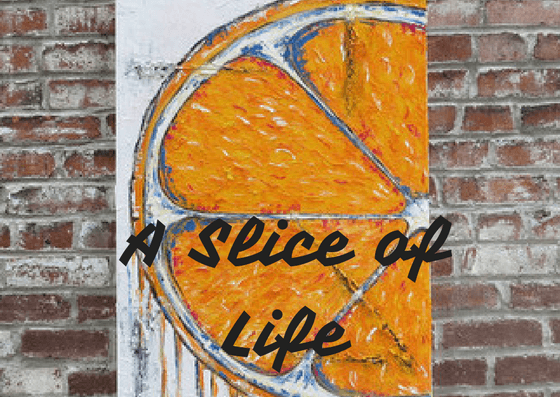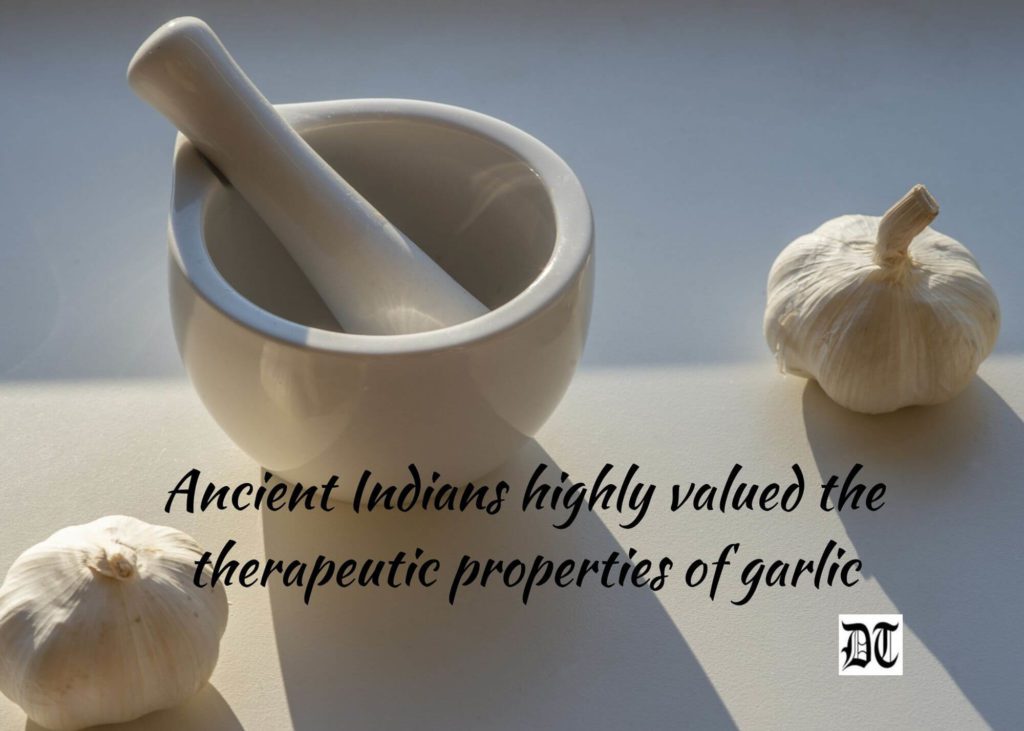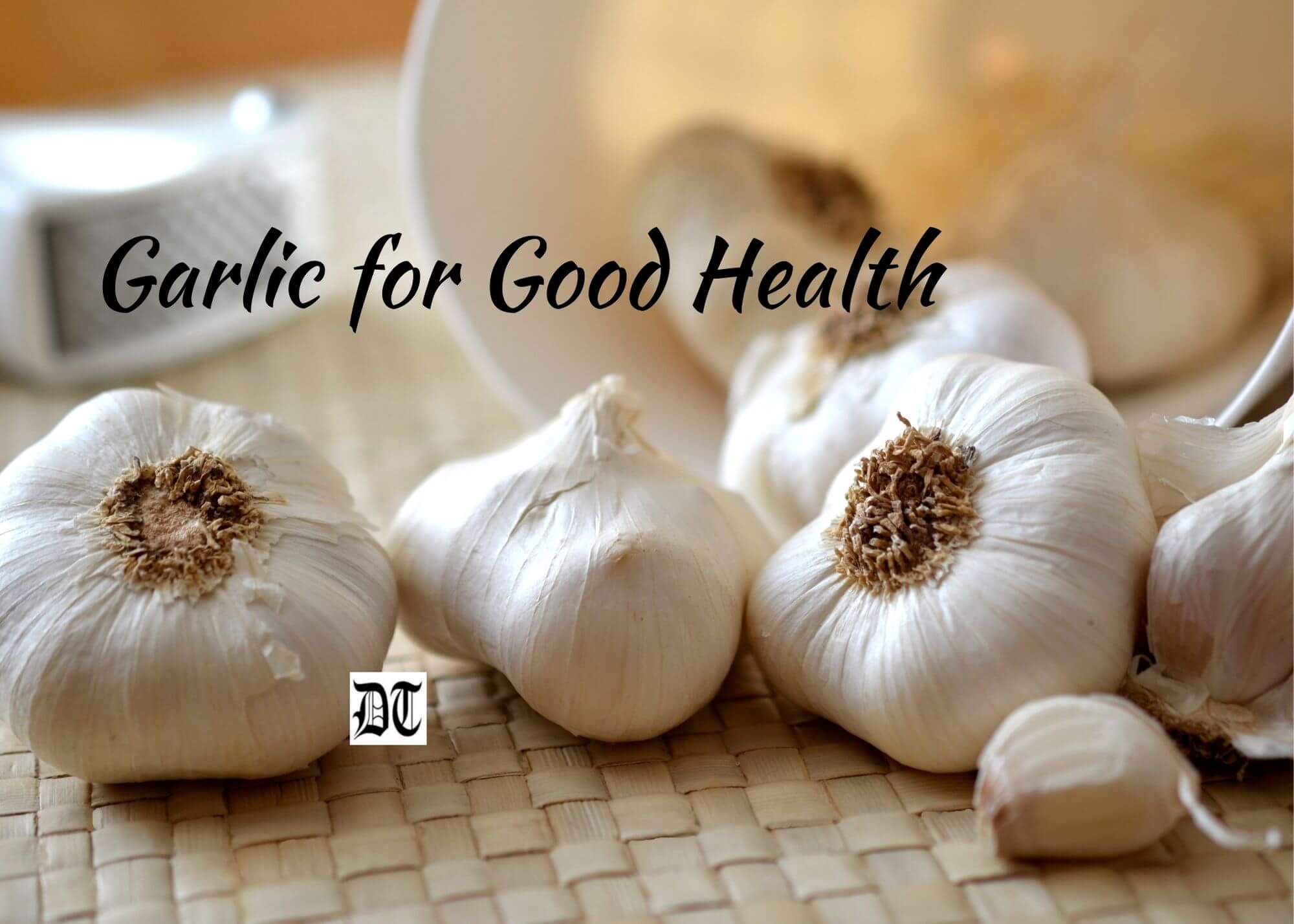Reading Time: 3 minutes
Ruchira discusses the curative properties of garlic. She traces its antiquity to the Giza pyramids, 5000 years ago. An exclusive for Different Truths.

I confess, I simply love to eat garlic bread anytime, anywhere. I would refuse my favourite chicken or mutton curry dishes if they didn’t contain garlic. Moreover, I am also in the habit of munching a clove of garlic each morning, washed down with water. This helps to get rid of cough and colds, especially during the winter season.
Garlic has been used all over the world since the dawn of civilisation. It is believed that garlic was in use when the Giza pyramids were built that is nearly 5,000 years ago.
The ancient Greek physician Hippocrates … is believed to have prescribed garlic for a wide range of ailments.
The ancient Greek physician Hippocrates, who is hailed as the father of Western medicine, is believed to have prescribed garlic for a wide range of ailments. He reportedly recommended garlic for treating respiratory problems, poor digestion, and fatigue among many others. The Olympic athletes in ancient Greece were administered garlic – an uncanny similarity with the steroids consumed by modern day sports persons to enhance performance.
In ancient Egypt, people prolifically used it for culinary purposes as well as medication. From ancient Egypt, garlic spread through the Indus Valley right up to China.
…ancient Indians highly valued the therapeutic properties of garlic, besides designating it as an aphrodisiac.
It is rather well-known that the ancient Indians highly valued the therapeutic properties of garlic, besides designating it as an aphrodisiac. After we belong to the land where the Kama Sutra was penned and compiled, don’t we? Also, I recall reading somewhere that the indigenous names of garlic e.g., Hindi lehsun or Bengali roshun are most likely derived from the Ayurvedic name Rasona (Rasa+Una). It implied that garlic was replete with all rasas orvital elements (elixirs) and deficient in only one. The sole minus point being the repulsive odour.

The Unani system of medicine – which sprang up in the Arab world – makes abundant use of garlic (Seer and Saum in Persian & Arabic respectively)in the treatment of diverse ailments.
In medieval European societies, garlic was believed to possess exorcising powers to drive away evil spirits. The blockbuster/thriller is a good example in this case.
In modern contemporary medicine, garlic is widely used for disorders linked to the circulatory and heart.
In modern contemporary medicine, garlic is widely used for disorders linked to the circulatory and heart. These include atherosclerosis (hardening of the arteries), high cholesterol, heart attack, coronary heart disease, and hypertension to name a few.
According to our very own Ayurveda, garlic, if consumed with oil each morning helps cure vitiligo, dermatopathies, haemorrhoides, turbidity in urine, krimi (worm), kapha (phlegm), chronic Rhinitis, breathing problem, cough et al. A compound formulation of garlic with other plant and mineral extracts is suggested for curing epilepsy.
Lasunadya ghrita a garlic and ghee preparation, is prescribed abdominal colic, abdominal disorders, anemia, splenomegaly, uterine disorders…
Lasunadya ghrita a garlic and ghee preparation, is prescribed abdominal colic, abdominal disorders, anemia, splenomegaly, uterine disorders, and yes even insanity! A concoction of sun-dried garlic with water and milk in specific ratios cures sciatica, sporadic fever, cardiac ailments – abscess, inflammations, and lots more…
What a paradox. Folks belonging to the higher echelons of our society vehemently shunned garlic – its usefulness notwithstanding – due to its odour. Monks, and widows (more so those of upper classes) were prohibited from consuming garlic lest its stimulant quality enhance their libido and lead them astray!
Amazing indeed that such a ubiquitous as well as innocuous plant be maligned and condemned in this fashion. Some people may not agree but the fact remains there exist many more herbs, foliage and plant derivatives, which are equally odorous, if not more. Why gloss over them?
Visuals by Different Truths















